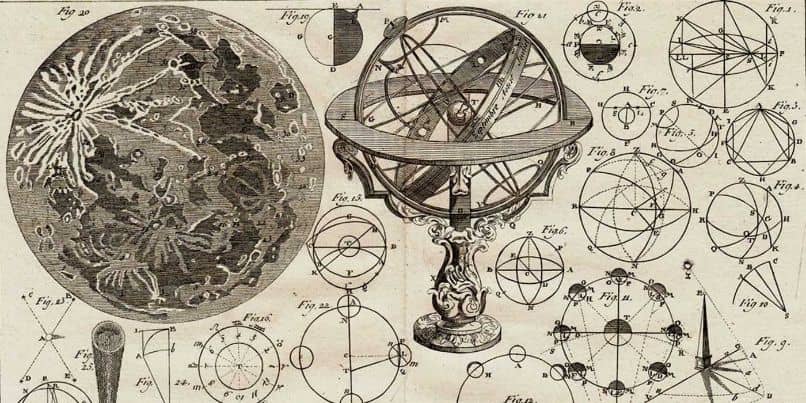Since the dawn of existence, the human being has always been curious about what surrounds him. That fundamental characteristic of evolution, It has been a bridge for the discovery of great facts. Among many, the pride of history, without a doubt, is ancient astronomy as such.
You may also be interested in our article: Astronomy: Everything you need to know!
Relevant facts about ancient astronomy that you should take into account
It may be complex to think that, in the remote past, astronomy was an already consolidated science. Above all, because previously, the necessary resources were not available for a precise study.
However, man has soared through the skies with precision, relying merely on rudimentary instruments. In addition, at that time, the intellectual community had to fend for itself, so innovations did not stop appearing.
The beginnings of ancient astronomy, They began with the observation of phenomena that occurred in the sky. From the famous eclipses, the movement of the moon and the sun, to the currently known meteor showers; everything was studied.

Source: Anfrix
By virtue of this, the first sightings and most accurate conclusions for the time were released. One of them was the geocentric theory of Ptolemy, where it was established that the Earth was the center of the universe.
Other precise data from ancient astronomy, led to to the discovery and knowledge of other planets of the solar system. Beyond Jupiter and Saturn, there were still unexplored limits, little imagined for that time. Even so, they were discovered and shown to the general public.
For its part, ancient astronomy was closely related to the religion and beliefs of the time. Basically, the readings obtained by some cosmological event were attributed to a deity or similar.
Likewise, various celestial events were related to fortune or misfortune. For example, there were those who believed that eclipses blessed a new beginning, as well as others who believed that they triggered apocalyptic events. Regardless of the case, thanks to the intervention of cultures, little part of the universe is known.
Ancient Chinese astronomy. Was it as influential as the Greek? The truth is here!
The only irrefutable aspect of ancient Chinese astronomy is that its longevity is greater than that of other cultures. Even its presence dates from years before the establishment or rise of Greek astronomy as such.
This Western science, back then, It was considered one of the most accurate at the time. Likewise, it was revolutionizing the conception of the planet and existence as such. Similarly, they were characterized by purely scientific study, without confusing it too much with beliefs or the presence of deities.
In fact, due to the influence of the chinese astronomy of the past, some of the most famous constellations, were named. Western astronomy predicted the existence of up to 284 constellations in the sky, but which are currently considered as asterisms or uncertified constellations.
For its part, ancient Chinese astronomy is rewarded for having done excellent stellar work. They were the first to study sunspots, as well as owners of one of the oldest solar calendars. Overall, his predilection for the sun was tremendous, studying it up close.
Similarly, among its ranks lies one of the most comprehensive early star calendars to date. With more than 800 stars catalogued, they began to take a look at the heavens of the universe and how they directly influenced the Earth.
It should be noted that, Western astronomy considered China to be the center of the planet, adopting a fixed position with respect to it. Due to their own conclusions about the Sun, they managed to deduce the beginning and end of the day in China.
The weight of astronomy in ancient Greece that is still palpable today
Although it is true that Chinese astronomy is older than the Greek, very little is known about it. However, astronomy in ancient Greece was considered revolutionary, supported by great heroes.
Just enough take a look at early conceptualizations of the universe with the geocentric theory. A premise that remained in force until the rise of the Renaissance as such.
Talking about this science linked to Greece is a guarantee of great feats in cosmological matters. Heroes such as Aristotle, Ptolemy, Archimedes and more, are owners of the most influential astronomical works of the time. Although several of his ideas are now discarded, they served as a starting point to support astronomy in ancient Greece.
Traveling to the stars with the Almagest
The Almagest, it is Ptolemy's final masterpiece to describe the universe. When it was published, his geocentric theory was fully fortified, so it was quickly adopted by the scientific community.
Within the Almagest, the 48 approved and currently known constellations, including those of the zodiac, are described in great detail. In turn, Ptolemy offered an exact and embodied vision of the movements made by the planets around the Earth.
A look at the size of the universe: The Sand Counter
Archimedes is credited with writing "El Contador de Arena", a work intended to calculate the size of the universe. In short, the writing has the premise of determining how many grains of sand it is possible to fill the universe with.

Source: Star Tourism
Beyond actually considering estimating the actual size of the cosmos, he made use of his work to create a giant numbering system. Thanks to his contribution, the myriad, is known for expressing incalculable or indecipherable numbers.
Aristotle's Thoughts: On Heaven
Over Heaven has transcended by to be a philosophical and astronomical masterpiece of Aristotle. In it, the most accurate movements and descriptions about the stars studied at that time are captured.
Similarly, Aristotle emphasizes his theory of the sphericity of the Earth and the Universe. Basically, he established that the Earth, like the cosmos, had a perfect circular shape, with movements that have a why and what for.